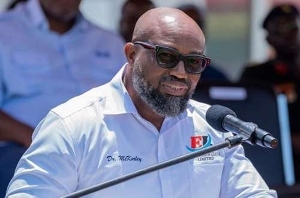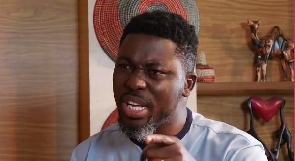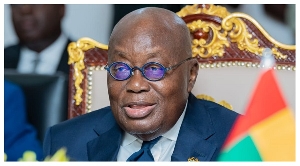Opinions of Tuesday, 8 January 2013
Columnist: Hamilton, John
All Peace Be Peace
It’s now been about a month since I’ve left Ghana, and as I watch the political developments from across the ocean, I admit to being less than satisfied with the inauguration of John Mahama under the current circumstances. Those who have read my columns know that I have been quite critical of the NDC throughout the campaign. Quite simply, I felt that Mahama didn’t show enough energy about his candidacy, whereas Nana Akufo-Addo of the NPP was like a fireball, which personally I like. Also, I found Kwesi Amissah-Arthur a laughing stock as a Vice President and nowhere near as qualified as Mahamudu Bawumia, as my previous columns have indicated.
But ignoring my own political preferences, as we go into a new Presidential term, despite a pending court case which could render this entire process moot in just a few weeks, I have to join the chorus of observers around the world who remain impressed with Ghana’s ability to resolve its political differences peacefully.
I do not make this judgement in a vacuum, as I am familiar with other African nations as well, even those regarded as peaceful and stable, like Ghana has been for a solid two decades. Take the case of Senegal, for example. While Senegal has had a consistent track record of free and fair elections without any coups or military intervention since independence in 1960, which not even Ghana can match, the Senegalese elections in early 2012 were no picnic. A major constitutional crisis developed with respect to former President Wade’s eligibility for a third term, and the opposition staged violent protests.
On several occasions in the months before the election, mobs took to the streets and burned anything they could put in the middle of the downtown intersections, to which the police responded with tear gas. Several deaths occurred at the hands of security forces and a very uneasy feeling pervaded Dakar.
Then there is the case of Mali, which was viewed as an up-and-coming democracy in Africa that also put its military past behind it and made the transition to free and fair elections, until the country literally fell apart less than two months before a new President was to be chosen, and a few army renegades took over.
Ghana was lauded in 2008 for resolving such a close election peacefully, although the international press seems to have missed reports of NDC “macho men” taking over the EC building with machetes and cutlasses, or violent acts during the intervening by-elections and biometric registration drives. But even such actions do not compare with the carnage in Kenya in 2007, for example, and the transition from has gone smoothly, even after the death of President Mills.
Basically, Ghanaians of any party have not allowed violence to play a role in their political processes. It’s quite impressive. But this is why I found it quite bizarre that throughout the campaign, one of the major NDC attacks against Nana Akufo-Addo was the infamous “all die be die” remark that he made to a group of NPP activists.
NPP spokespersons will cry foul and say that the remark was never intended to be made public, but that is a poor excuse. In today’s day and age, a politician must assume that EVERYTHING he says in any context outside a private meeting with trusted companions, will be made public. Mitt Romney’s disastrous 47% remarks during the recent American Presidential campaign are Exhibit A.
Those same NPP spokespersons, and indeed Akufo-Addo himself (when he has been asked to put the remark in context) have pointed out that he never meant it as a call to arms, but rather a rallying cry of communal defense if power abusers tried to physically intimidate or steal votes.
Looking back now, a month after the election, we have the NPP making allegations of massive fraud, staging a boycott of the inauguration, and filing a petition at the Supreme Court of Ghana. Nothing violent whatsoever is taking place on their part. Akufo-Addo really deserves an apology from those who painted him to be some kind of warmonger or violent rabble-rouser.
Clearly, the NPP has rejected the election as a fraud. The evidence, if it can be verified, is gargantuan. But that remains to be seen in the coming weeks. In the meantime, Akufo-Addo deserves credit for keeping his troops in line and sticking to a legal redress of grievances through constitutional means.
There has been no violence at all since the day of the elections, save for one or two street brawls in which only minor injuries resulted. This is an extraordinary feat in Africa. Ghana deserves credit for that. Ghanaians deserve credit for that. Ghanaian political leaders deserve credit for that. And they should be judged by their actions. It’s time to get over the “all die be die” remark once uttered by Nana Akufo-Addo. He’s proved himself committed to peace, as he has been for his entire career. Let’s hope that if the Supreme Court rules the December election invalid, that John Mahama and the NDC leaders show the same commitment.












